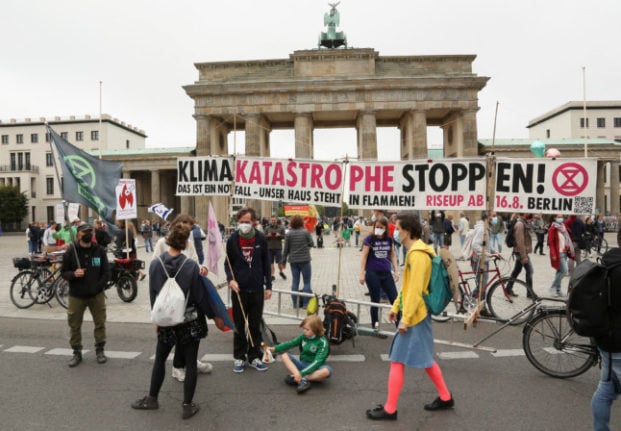The United Nations Human Rights Council, the Red Cross and scores more international organisations are based in Geneva, where protesters frequently rally, especially when the UN council is in session.
But almost 55 percent of voters in the country’s second-largest city approved a law letting authorities fine demonstrators up to 100,000 Swiss francs ($110,000) if they rally without prior permission or do not abide by agreed conditions.
The vote came in regional elections that also saw the work-oriented Swiss reject longer vacations but agree to a special parking facility with walls between spaces for prostitutes and their clients to ensure privacy, and get them off a suburban street.
Proponents say the street-protest measure will prevent unruly gatherings, such as when demonstrators smashed shop windows and set cars alight during the 2009 anti-World Trade Organisation actions.
But the law has riled a key UN human rights expert, who said such amendments “unduly restrict” the rights to free expression.
“The exercise of fundamental freedoms should not be subject to a previous authorisation by the authorities,” said Maina Kiai, the UN special rapporteur on the rights to freedom of peaceful assembly and of association.
Though Kiai credited Switzerland overall for steps it had taken to protect free speech, he said “the proposed changes to the law on demonstrations in the canton of Geneva are not in consonance with these positive efforts”.
The new law also allows authorities to change demonstration itineraries if they pose “disproportionate risks to people” and their property, a move that would give officials the power to ban gatherings in the city centre.
The vote came as part of a set of local ballot initiatives across Switzerland, where anyone can put a question to a referendum if he or she is able to gather 100,000 eligible voter signatures within 18 months.
In Zurich, Switzerland’s largest city, voters approved the construction of what was locally called sex boxes where prostitutes can ply their trade. The proposal was aimed at moving streetwalkers away from residential zones and away from the city centre.
Meanwhile on a federal level, the Swiss, known for their strong work ethic, rejected a union-led proposal to extend paid leave from four to six weeks.
The government and businesses warned that the proposal would make labour costs too high.
In another federal vote, the Swiss decided to limit the construction of second homes in communes to 20 percent. The issue is particularly pertinent for ski resorts, many of which have seen a building boom.
Proponents said such building frenzies disfigure the landscape and lead to unaffordable homes for locals.
“The Swiss people have shown they want to safeguard Switzerland’s beauty,” said Vera Weber, vice president of an environmental group.
Voters also agreed to allocate all lottery and gambling revenues to public use such as in cultural, social or sports activities.









 Please whitelist us to continue reading.
Please whitelist us to continue reading.
Member comments